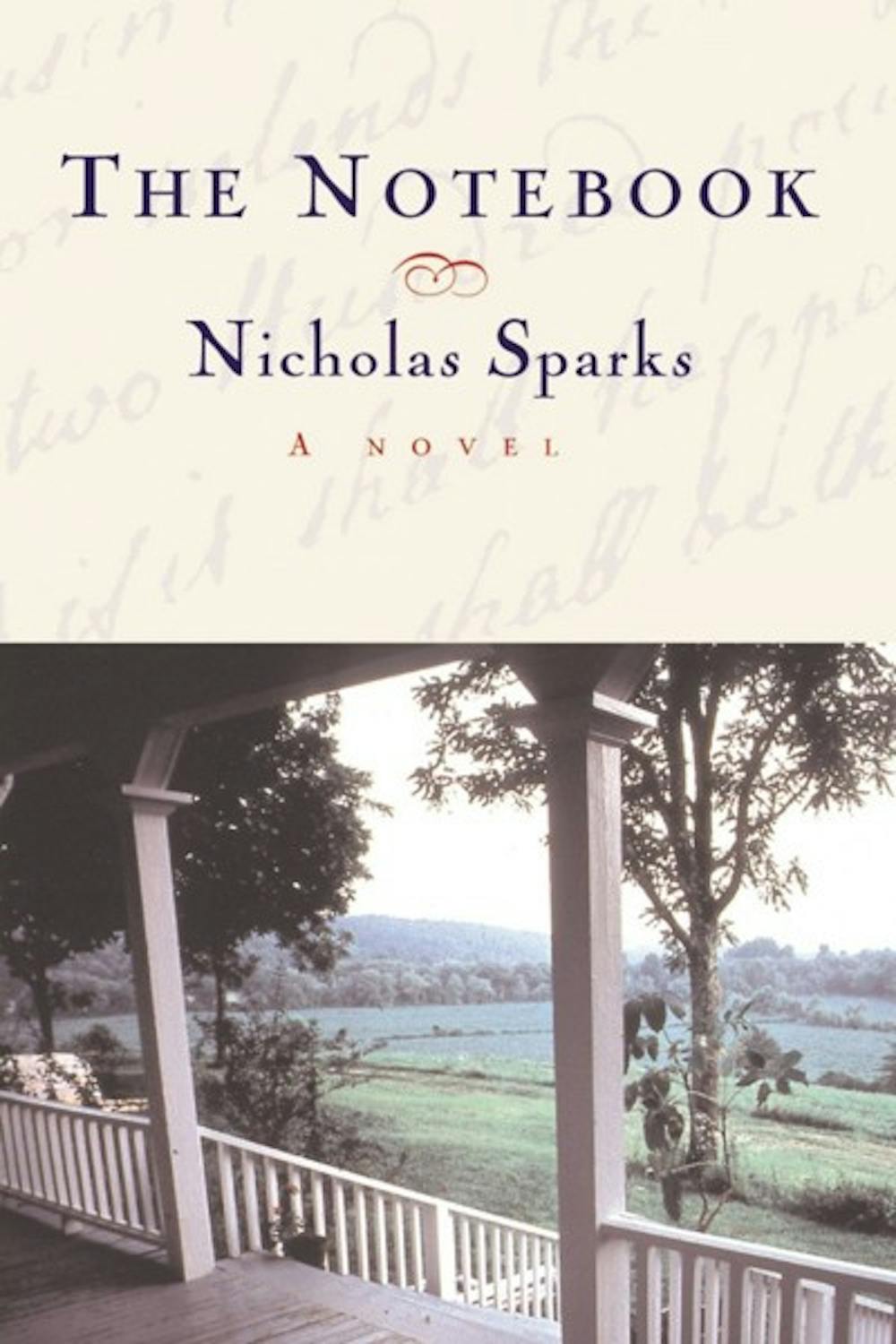My editor tells me time and again to write what I’m passionate about, and if there is one thing that is irrefutably true in my heart, it is that Nicholas Sparks is one of the biggest tools in the world, second only to James Cameron. Because I don’t see myself changing my mind about the “Terminator” franchise any time soon, I figured it might be time to branch out into the world of the unknown. After finding “The Notebook” in my Barnes & Noble recommendations, I decided it was time to give it a try.
I had no idea what I was signing up for.
Initially intrigued by the apparent Marxist tensions that were touted on the back of the book, I found instead a tale of melodramatic “romance” between a spoiled Southern belle and a stereotypically poetic nature-boy. (Oh, you like Whitman’s “Leaves of Grass?” So does everyone else.)
My disappointment was immediate. As the exposition for this book was not only full of clichéd pretensions about the pensive male lead of the novel, but also so boring that I fell asleep not once, but twice while trying to get through it. Where was the powerful teenage romance I had read so much about in critical reviews? The pained declarations of love lost and then found again? I had been duped, as all I read about for the first 30 pages was a wannabe-beat poet sitting on his porch in the forests of North Carolina and a Southern socialite trying to make the decision between her head and her heart (a unique decision indeed for a literary female to have to make).
The rest of the book, however, proved to be a romantic opus full of meaningful embraces and cloying endearments. That is, if you consider awkward diction and sexual tension to be the epitome of human romance. I felt more uncomfortable reading “The Notebook’s” love scenes than I have in reading pretty much anything else, and that’s coming from someone who read the entirety of “Breaking Dawn.”
An image of me, taken after I finished reading "The Notebook" and realized that my Nook was forever tainted.
But, of course, I’m being too harsh. I mean, Nicholas Sparks is the master of the modern love story, a fact that he reassured us of when he compared his work to that of Sophocles, Hemingway and Austen in a 2010 interview with USA Today. As the expert on this area of fiction, Sparks has to know that the go-to formula for romantic tragedy is one-dimensional characters, a vague backstory of teenage love and frequent reminders from the author about the emotional depth of the relationship.
Certainly the reason that we all sob at the end of “Cold Mountain” or “Camille” has nothing to do with the fact that the characters have finally come to accept and love each other despite well-defined flaws, but because the author took the time to explicitly tell us (over and over again) that they love each other.
What was that thing my creative writing teacher kept repeating in class? “Tell me, don’t show me,” right? Something like that.
Of course, after being so affected by this timeless romance, I was deeply disappointed to see the 129-page odyssey come to an end, when, lo and behold, I stumbled across my savior at the back of the novel: “Turn the pages to see the photos that capture the scenes and characters from the beloved ‘The Notebook’ movie.” I, being a single girl of a certain age who desperately wants to conform to society’s expectations of me, decided to cough up the $3 to Amazon and watch the movie.
I’m not going to take the time to spoil this cinematic masterpiece for my readers because, being a responsible reviewer, I know that I need to allow you to enjoy it for yourselves. And enjoy it you will, for how could you deny the piece of art that brought us such beauties as this scene. Also, it stars Ryan Gosling, so there’s really no way to go wrong here.
All in all, Nicholas Sparks’s brilliant take on teenage love lost and regained proved to be a meaningful journey through the world of clichés and stale sentimentality that was definitely (not) worth the wasted hours of homework I could have been doing otherwise. But what can I say, he wrote me 365 letters. Every day for a year. And how could I deny a man after that?
Tell the reporter about your overdue book reviews at ezentner@asu.edu or Tweet her @emilymzentner
Like The State Press on Facebook and follow @statepress on Twitter.





